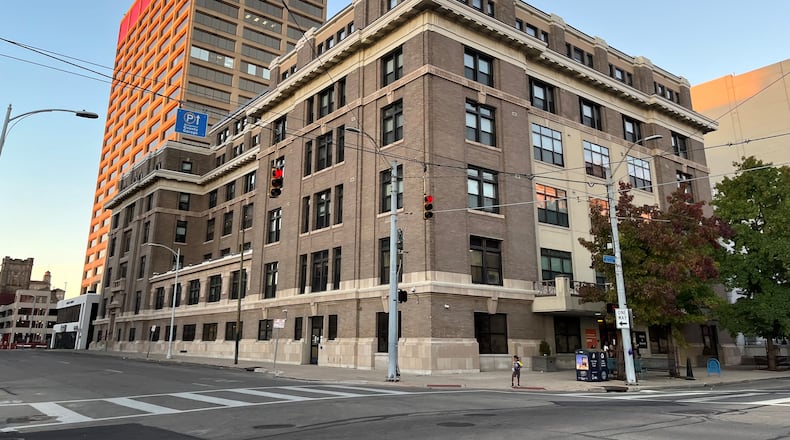“As awareness of human trafficking grows, the number of identified victims also increases, so it is absolutely critical that our local service programs have enough resources,” said DeWine in a press release.
Officials at YWCA Dayton, an organization that assists people impacted by domestic violence, human trafficking and other social justice issues, say human trafficking in the region is more common than people may think.
YWCA rape crisis center manager Mady DeVivo said human trafficking is the act of forcing or coercing another person or people in order to benefit from their labor or services.
YWCA has also seen an increase in the number of people seeking help after being trafficked; this is driven by outreach efforts to educate the public on what trafficking looks like, DeVivo said.
“Many people don’t know they’re being victimized,” DeVivo said. “And the reality is, it’s happening in our homes. Or even on the internet.”
Locally, YWCA has even worked with youth who are being trafficked on the weekends when they’re not in school. Many women who come to YWCA for help after experiencing domestic violence, too, often share experiences of being trafficked by their partners.
The state funding is available for nonprofit organizations to help them adequately serve the growing number of sex and labor trafficking victims in need of support.
“Those who’ve been subject to human trafficking have unique needs and often require several levels of support to move forward, and this investment will make a significant difference in helping survivors take back control of their lives,” said Maria Busch, state anti-trafficking coordinator for the Governor’s Human Trafficking Task force.
Nonprofit organizations that provide direct support to victims of trafficking and those considered at high risk of trafficking will be eligible for grant funding.
YWCA offers a spectrum of services to women and children, including assistance with transportation, housing and case management. YWCA Dayton can also attend legal or law enforcement appointments with victims, help them file paperwork and more, DeVivo said.
Direct services that are eligible for funding include mental health services, substance use disorder treatment, education and employment support, residential placement and more.
A YWCA spokesperson said the organization celebrates the governor’s office for recognizing the need for the funding.
Other initiatives have been underway to crack down on human trafficking throughout the state.
A recent weeklong string of sting operations carried out by Ohio anti-human trafficking task forces and law enforcement, including one operation in Montgomery County, resulted in 160 arrests, according to the Ohio Attorney General’s Office.
Out of the Montgomery County Human Trafficking Task Force’s sting operation, four arrests were made. This includes both a staff sergeant and a major in the U.S. Air Force, a University of Dayton administrator and a professor from Indiana University.
More than 100 survivors of human trafficking were identified and connected to health care and social service resources.
“The success of this operation is measured not only by the number of arrests but also by the resources offered to survivors of human trafficking and the intelligence gathered that will propel long-term investigations forward,” said Ohio Attorney General Dave Yost in a press release.
About the Author

